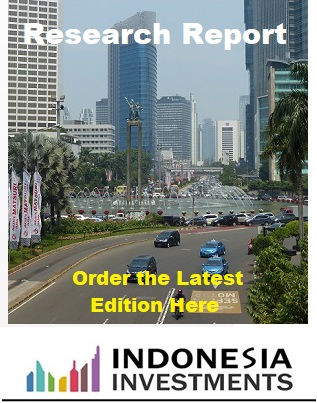Indonesia-Australia Trade Deal to Be Completed Before End-2018
Negotiations related to the Indonesia-Australia Comprehensive Economic Partnership Agreement (IA-CEPA) have entered the final phase. Iman Pambagyo, the Trade Ministry's International Trade Negotiations Director General, said both sides are currently finalizing the agreement. He added that around 85 percent of the agreement has been completed now and the deal is expected to be fully completed before the end of 2018.
There are still various matters that need to be agreed upon by Indonesia and Australia. For example, the exact timing of implementation of the agreement. Moreover, both sides still need to agree on the amount of products that will be able to enjoy zero import duties through the IA-CEPA. Indonesia targets to see the elimination of 95 percent of tariffs on its export products to Australia.
Trade between Indonesia and Australia is targeted to rise on the back of the implementation of the IA-CEPA. Negotiations related to this agreement were resumed in May 2016 after being put on hold amid a period of severe diplomatic tensions between Indonesia and Australia, involving the "2013 spy-scandal", the execution of two Australian citizens in Indonesia, Indonesia's suddenly changing cattle trade policies, and the tough asylum-seeker policies of Australia.
Indonesia's trade deficit with Australia amounted to USD $757.9 million in the first quarter of 2018, down 3.7 percent year-on-year (y/y) from the USD $787 million deficit in Q1-2017.
Indonesia is also committed to reach a trade deal with the European Union (EU): Indonesia-European Union Comprehensive Economic Partnership Agreement (I-EU CEPA). Talks entered its fifth round in July 2018. In addition to targeting large export markets, Indonesia also seeks to develop new markets, for example through Preferential Trade Agreements (PTAs) with countries in Africa, including Mozambique, Morocco, Tunisia and Bangladesh.

Recent Diplomatic Tensions Australia-Indonesia
• The "2013 spying scandal" occurred in 2013 when allegations were made that the Australian Signals Directorate, which is an intelligence agency in the Australian Government Department of Defense, attempted to monitor activity on the mobile phones of then-President Susilo Bambang Yudhoyono, his wife and several senior government officials.
• Another major diplomatic fallout occurred when - despite Australia's pleas for clemency - Indonesia executed two Australian citizens (members of the so-called "Bali Nine" drug trafficking ring) in May 2015.
• In mid-2015 Australian live cattle exporters objected strongly when Indonesia imposed barriers on cattle imports from Australia, slashing total cattle imports by 80 percent. The Indonesian government made this move in a bid to enhance self-sufficiency in beef. However, the decision actually led to soaring local beef prices and good gains for the so-called "beef mafia" (which refers to certain groups that deliberately hold on to the beef supply in order to let prices raise before selling beef).
• In early 2016 Indonesian officials said Australia is not doing enough to help refugees in the Asia-Pacific region.
-----------------------------------------------------------------------------------------------------------------------------------------------------------
• Indonesia Investments' Research Report (edition July 2018) will be out on Monday 6 August 2018
-----------------------------------------------------------------------------------------------------------------------------------------------------------
Bahas
Silakan login atau berlangganan untuk mengomentari kolom ini

